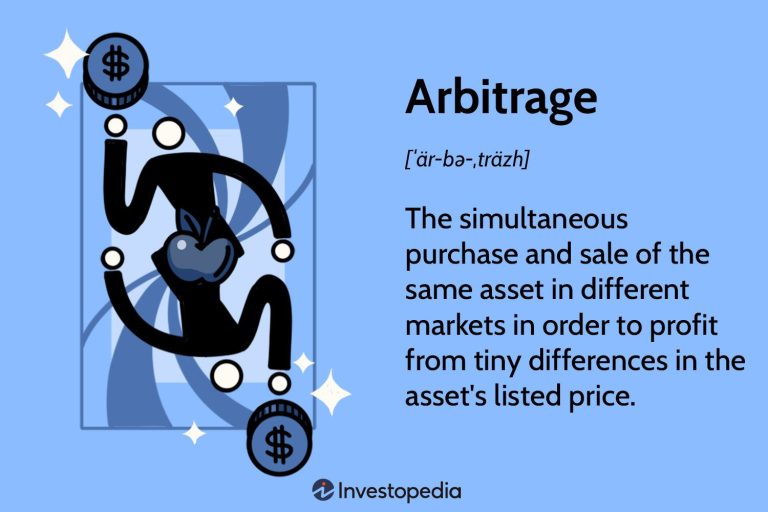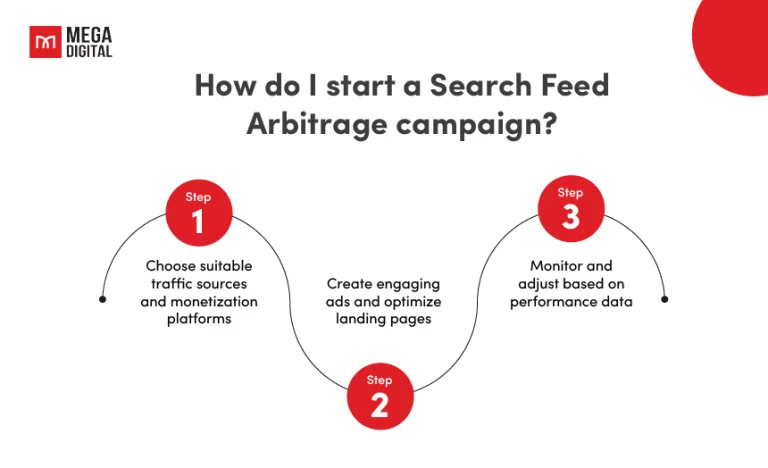Search Arbitrage Network
Isn’t it fascinating how quickly information and trends can be driven by the click of a mouse? Within the realm of digital marketing, Search Arbitrage Networks serve as a strategic battleground where marketers leverage search engine visibility to capitalize on cost differences. They are the silent architects behind many successful online campaigns, orchestrating traffic and profits in swift harmony.
You may already know how Search Arbitrage Network emerged as a game-changer in digital marketing. Originally born out of the old-school arbitrage concept, it combines cost-effective keyword bidding and ad placements across search engines. This network not only maximizes visibility but also generates significant returns, often achieving profit margins upwards of 30%. It’s a dynamic solution for those who understand the art of balance between expenditure and return.

Search Arbitrage Network: An Overview
Search Arbitrage Network is like a clever middleman in the world of online advertising. It takes advantage of price differences between different search engines. This network buys ad space cheaply on one platform and sells it for a higher rate on another. The trick lies in understanding these price gaps. By doing this smartly, advertisers can earn profits by guiding traffic efficiently.
Imagine having a map, but only you know the shortcuts. The Search Arbitrage Network uses data insights to plot these paths. It identifies keywords that are priced inexpensively in one place but have high value in another. This allows businesses to stretch their digital marketing budget. It’s like getting more bang for your buck without any extra effort.
A unique feature of this system lies in its dynamic nature. Search trends change rapidly, so constant monitoring is crucial. Businesses engaged in this must adjust their strategies based on current data. It’s not just about buying low and selling high, but staying updated. This ever-evolving approach keeps the strategy fresh.
For those wanting to dive into Search Arbitrage, there are a few tools to consider.
- Ad trackers give insights into performance.
- Keyword research tools help find potential opportunities.
- Analytics software measures success and areas for growth.
These tools provide a framework for this intricate process. With them, navigating the world of search arbitrage becomes more accessible and rewarding.
The Concept of Search Arbitrage
Search arbitrage is rooted in the idea of making the most out of price differences. Simply put, it’s about buying low and selling high, but in the digital ad world. This involves purchasing web traffic from one search engine at a lower cost and redirecting it to a higher-paying search engine. By doing this, advertisers can earn a profit. It’s a strategic dance of numbers and opportunities.
The process may sound simple, but it requires detailed planning. Advertisers need to track changes in keyword pricing constantly. Search engines like Google or Bing have varying rates for similar keywords. Understanding these variations is crucial for effective search arbitrage. This is where data analysis plays a major role.
With technology constantly evolving, search arbitrage has become more sophisticated. Modern tools can assist advertisers by providing real-time data. Using these tools, businesses can spot emerging trends and shifting opportunities. It’s like having a powerful magnifying glass to spot tiny details others might miss. The more insights you gather, the better your strategy becomes.
There are specific components that make search arbitrage successful.
- Accurate data collection helps in smart decision-making.
- Competitive analysis gives an edge over others.
- Continuous monitoring keeps strategies adaptive and effective.
Each element contributes to a well-rounded approach. When used correctly, these strategies can transform an ad campaign into a profitable venture.
The Functioning of Search Arbitrage Network
The world of search arbitrage networks revolves around identifying opportunities online. It starts when advertisers look for differences in pay-per-click (PPC) rates across various platforms. They then utilize these differences to their advantage. For example, they might buy traffic from a cheaper source and direct it to a more expensive one. This method allows advertisers to pocket the difference as profit.
Technology plays a significant role in this process. Automated tools help track keyword costs and trends in real time. Businesses rely on these tools to make quick decisions.
- Tracking software provides insights into cost variations.
- Analytics applications predict potential earning opportunities.
- Ad platforms integrate seamlessly for efficiency.
It’s like having digital assistants that work around the clock.
Strategy is another vital element here. Advertisers need to focus on the right keywords and platforms. They often experiment to see what combinations work best. By testing various angles, they optimize their campaigns for maximum return. This strategy helps maintain an edge over competitors.
To truly succeed in search arbitrage, businesses must stay updated. The digital landscape shifts rapidly, and what’s effective today might not work tomorrow. Observing market trends and adjusting approaches is crucial. By staying alert and adaptable, advertisers can continue reaping benefits. It’s a game where flexibility and knowledge are key.
Advantages of Utilizing a Search Arbitrage Network
One significant advantage of search arbitrage networks is cost efficiency. By targeting low-cost keywords, advertisers can save money on purchases. This approach may reduce advertising expenses significantly. It allows businesses to stretch their budget further. This efficient use of funds leads to better financial outcomes.
Another benefit is the potential for high profits. With the right arbitrage strategy, companies can earn more than they spend. A properly executed strategy ensures a positive return on investment (ROI). For businesses looking to boost their revenue quickly, this is a game-changer. It transforms basic investment into measurable profits.
Search arbitrage networks also provide improved targeting. By analyzing data, advertisers can aim their campaigns at specific audiences. This precise targeting ensures that ads reach viewers likely to engage or purchase. It means businesses spend less on uninterested audiences. Better targeting increases the chance of conversions.
Flexibility is another noteworthy advantage. Unlike traditional marketing methods, digital advertising allows easy adjustments.
- Adjust keywords and budgets in real-time.
- Experiment with different strategies at any moment.
- Quickly respond to market changes.
This flexibility helps businesses stay ahead of the curve.
The insights gained from a search arbitrage network can be invaluable. Data and analytics reveal market trends and consumer behavior. This information allows businesses to make informed decisions. They can refine future campaigns based on these insights. This data-driven approach enhances overall marketing strategies.
Ultimately, using a search arbitrage network gives businesses a competitive edge. It empowers them to optimize their marketing efforts like never before. With lower costs, high profits, precise targeting, and greater flexibility, businesses can thrive. The advantages are clear and compelling. For those who harness it well, it’s a path to success.
Challenges and Risks in Search Arbitrage Network
Operating within a search arbitrage network comes with its unique set of challenges. One key challenge is the fluctuating nature of ad prices. Costs can change rapidly, making it tricky to maintain profitability. Advertisers need to stay vigilant and monitor these shifts closely. This constant vigilance requires significant time and resources.
Another risk involves increased competition. As more businesses discover the benefits of search arbitrage, the space becomes crowded. This means that competition for valuable keywords intensifies. Higher competition can drive costs up, reducing profit margins. Navigating this environment demands a solid strategic approach.
Complex algorithms also pose a challenge. Search engines frequently update their algorithms, affecting ad placements and pricing. Advertisers need to adapt quickly to these changes to maintain effectiveness.
- Understand the impact of algorithm updates.
- Adjust strategies based on new rules.
- Maintain current knowledge of platform changes.
It’s crucial to stay informed to avoid potential pitfalls.
The risk of traffic fluctuations is another concern. Traffic volumes can vary, impacting the effectiveness of ad campaigns. Unpredictable traffic patterns can lead to unexpected costs or revenue shortfalls. Advertisers need contingency plans to handle such situations. This unpredictability adds another layer of complexity.
Fraudulent activities pose a real threat in this arena. Some entities engage in deceptive practices to manipulate results.
- Fake clicks impact ad budgets.
- Misleading traffic reports skew data.
- Identifying fraud is challenging but essential.
Businesses must implement robust systems to detect and deter fraud. Protecting against these risks is vital for sustainable success.
Successful Strategies for Profitable Search Arbitrage
One successful strategy in search arbitrage involves leveraging detailed keyword research. By identifying low-cost, high-value keywords, businesses can capitalize on profitable opportunities. Using keyword analysis tools helps advertisers find these golden opportunities. Prioritizing long-tail keywords can also lead to better targeting. This approach ensures campaigns are both effective and efficient.
Adopting real-time monitoring tools can significantly enhance strategy effectiveness. These tools provide up-to-the-minute data on market trends and keyword pricing. With such insights, advertisers can adjust tactics quickly to optimize results.
- Track keyword performance.
- React promptly to price changes.
- Empower decision-making with current data.
This proactive approach boosts competitive advantage.
Creating dynamic ad content is another important tactic. Tailoring ads to match audience preferences increases engagement. Experimenting with varied ad formats keeps the content fresh and appealing. This diversity attracts a broader audience and enhances user experience. By doing so, businesses can foster positive interactions and drive more clicks.
Another vital strategy is focusing on audience segmentation. Understanding target demographics allows for more precise advertising. Advertisers can craft campaigns that resonate with specific groups. Personalized messaging enhances relevance and boosts conversion rates. This targeted approach leads to better investment returns.
Earning profitable results also involves analyzing past campaign successes and failures. Learning from previous experiences helps refine future strategies. Reviewing what worked and identifying areas for improvement provides valuable insights. This reflective process contributes to the continuous enhancement of ad strategies. By evolving tactics over time, businesses can secure sustained success.
Additionally, collaborating with skilled partners can bring new perspectives to the table. Experts in search arbitrage offer valuable guidance and experience. They can help navigate complex challenges and uncover hidden opportunities.
- Gain expert insights.
- Leverage industry knowledge.
- Strengthen strategic planning.
Partnering effectively enhances the potential for profitability.
Key Takeaways
- Search arbitrage capitalizes on keyword price differences across platforms.
- It involves buying low-cost traffic and redirecting for profit.
- Real-time data is essential for effective strategy adjustments.
- The goal is to maximize return on investment in digital marketing.
- This approach thrives on targeting and competitive insights.
Frequently Asked Questions
Search arbitrage networks can seem complex, but they’re quite fascinating. Let’s explore some common questions that help simplify their understanding.
1. How does search arbitrage generate profit?
Search arbitrage generates profit by purchasing low-cost traffic from one platform and redirecting it to another where advertisers pay more. The difference in cost between these two platforms is the profit margin that businesses aim to maximize through strategic keyword targeting.
This method requires constant monitoring of pricing trends and adjusting strategies accordingly to maintain profitability. By leveraging real-time data and insights, businesses ensure their campaigns remain competitive, effectively improving their return on investment.
2. What are the main challenges in search arbitrage?
One main challenge is the constant fluctuation of keyword costs, which requires marketers to stay vigilant. Keeping up with rapid changes can be tough, but it’s vital for maintaining profitability.
Additionally, the increasing competition makes it difficult to find lucrative opportunities easily. As more advertisers enter the field, smart strategies and up-to-date market knowledge are essential for success.
3. Why is data analysis important in search arbitrage?
Data analysis plays a crucial role in identifying cost-effective keywords and trends, which drive success. It helps advertisers make informed decisions by offering insights into market fluctuations and audience behaviour.
With accurate data, advertisers can refine their strategies to align with current market conditions. This way, they react quickly to changes, securing a competitive advantage and increasing profits.
4. How do advertisers choose the right keywords?
Advertisers often use keyword analysis tools to pick keywords that are cost-effective and high in demand. These tools explore different options, helping businesses select keywords that may offer the best return on investment.
By focusing on long-tail keywords, advertisers can reach niche audiences with precision. This approach improves targeting, ensuring that their advertising efforts attract the most relevant and engaging traffic.
5. What role does flexibility play in search arbitrage success?
Flexibility is key to adjusting strategies swiftly in response to changing market conditions. It allows advertisers to remodel their tactics as needed, maintaining effectiveness and competitiveness.
By being flexible, businesses can stay ahead of competitors and capitalize on new opportunities. This adaptability is essential for sustaining and growing profits in the dynamic digital ad landscape.
Wrapping Up Thoughts on Search Arbitrage Network
Search arbitrage networks offer a unique blend of opportunities and challenges in the digital marketing landscape. By understanding how to balance cost-efficient traffic with targeted strategies, you can enhance your investment returns. The right approach involves constant learning and adapting to shifting trends.
As you explore this area, remember the importance of using data-driven insights and flexible strategies to stay competitive. Keep honing your skills and stay aware of industry changes to maximize success. Embracing these tactics will ensure you remain a step ahead in the dynamic world of online advertising.






